- Home
- Henry James
Daisy Miller (Modern Library Classics) Page 2
Daisy Miller (Modern Library Classics) Read online
Page 2
DAISY MILLER
I
At the little town of Vevey, in Switzerland, there is a particularly comfortable hotel; there are indeed many hotels, since the entertainment of tourists is the business of the place, which, as many travellers will remember, is seated upon the edge of a remarkably blue lake1—a lake that it behoves every tourist to visit. The shore of the lake presents an unbroken array of establishments of this order, of every category, from the “grand hotel” of the newest fashion, with a chalk-white front, a hundred balconies, and a dozen flags flying from its roof, to the small Swiss pension of an elder day, with its name inscribed in German-looking lettering upon a pink or yellow wall and an awkward summer-house in the angle of the garden. One of the hotels at Vevey, however, is famous, even classical, being distinguished from many of its upstart neighbours by an air both of luxury and of maturity. In this region, through the month of June, American travellers are extremely numerous; it may be said indeed that Vevey assumes at that time some of the characteristics of an American watering-place. There are sights and sounds that evoke a vision, an echo, of Newport and Saratoga. There is a flitting hither and thither of “stylish” young girls, a rustling of muslin flounces, a rattle of dance-music in the morning hours, a sound of high-pitched voices at all times. You receive an impression of these things at the excellent inn of the “Trois Couronnes,” and are transported in fancy to the Ocean House or to Congress Hall.2 But at the “Trois Couronnes,” it must be added, there are other features much at variance with these suggestions: neat German waiters who look like secretaries of legation; Russian princesses sitting in the garden; little Polish boys walking about, held by the hand, with their governors; a view of the snowy crest of the Dent du Midi and the picturesque towers of the Castle of Chillon.3
I hardly know whether it was the analogies or the differences that were uppermost in the mind of a young American, who, two or three years ago, sat in the garden of the “Trois Couronnes,” looking about him rather idly at some of the graceful objects I have mentioned. It was a beautiful summer morning, and in whatever fashion the young American looked at things they must have seemed to him charming. He had come from Geneva the day before, by the little steamer, to see his aunt, who was staying at the hotel—Geneva having been for a long time his place of residence. But his aunt had a headache—his aunt had almost always a headache—and she was now shut up in her room smelling camphor, so that he was at liberty to wander about. He was some seven-and-twenty years of age; when his friends spoke of him they usually said that he was at Geneva “studying.” When his enemies spoke of him they said—but after all he had no enemies: he was extremely amiable and generally liked. What I should say is simply that when certain persons spoke of him they conveyed that the reason of his spending so much time at Geneva was that he was extremely devoted to a lady who lived there—a foreign lady, a person older than himself. Very few Americans—truly I think none—had ever seen this lady, about whom there were some singular stories. But Winterbourne had an old attachment for the little capital of Calvinism; he had been put to school there as a boy and had afterwards even gone, on trial—trial of the grey old “Academy”4 on the steep and stony hillside—to college there; circumstances which had led to his forming a great many youthful friendships. Many of these he had kept, and they were a source of great satisfaction to him.
After knocking at his aunt’s door and learning that she was indisposed he had taken a walk about the town and then he had come in to his breakfast. He had now finished that repast, but was enjoying a small cup of coffee which had been served him on a little table in the garden by one of the waiters who looked like attachés. At last he finished his coffee and lit a cigarette. Presently a small boy came walking along the path—an urchin of nine or ten. The child, who was diminutive for his years, had an aged expression of countenance, a pale complexion and sharp little features. He was dressed in knickerbockers and had red stockings that displayed his poor little spindle-shanks; he also wore a brilliant red cravat. He carried in his hand a long alpenstock, the sharp point of which he thrust into everything he approached—the flower-beds, the garden-benches, the trains of the ladies’ dresses. In front of Winterbourne he paused, looking at him with a pair of bright and penetrating little eyes.
“Will you give me a lump of sugar?” he asked in a small sharp hard voice—a voice immature and yet somehow not young.
Winterbourne glanced at the light table near him, on which his coffee-service rested, and saw that several morsels of sugar remained. “Yes, you may take one,” he answered; “but I don’t think too much sugar good for little boys.”
This little boy stepped forward and carefully selected three of the coveted fragments, two of which he buried in the pocket of his knickerbockers, depositing the other as promptly in another place. He poked his alpenstock, lance-fashion, into Winterbourne’s bench and tried to crack the lump of sugar with his teeth.
“Oh blazes; it’s har-r-d!” he exclaimed, divesting vowel and consonants, pertinently enough, of any taint of softness.
Winterbourne had immediately gathered that he might have the honour of claiming him as a countryman. “Take care you don’t hurt your teeth,” he said paternally.
“I haven’t got any teeth to hurt. They’ve all come out. I’ve only got seven teeth. Mother counted them last night, and one came out right afterwards. She said she’d slap me if any more came out. I can’t help it. It’s this old Europe. It’s the climate that makes them come out. In America they didn’t come out. It’s these hotels.”
Winterbourne was much amused. “If you eat three lumps of sugar your mother will certainly slap you,” he ventured.
“She’s got to give me some candy then,” rejoined his young interlocutor. “I can’t get any candy here—any American candy. American candy’s the best candy.”
“And are American little boys the best little boys?” Winterbourne asked.
“I don’t know. I’m an American boy,” said the child.
“I see you’re one of the best!” the young man laughed.
“Are you an American man?” pursued this vivacious infant. And then on his friend’s affirmative reply, “American men are the best,” he declared with assurance.
His companion thanked him for the compliment, and the child, who had now got astride of his alpenstock, stood looking about him while he attacked another lump of sugar. Winterbourne wondered if he himself had been like this in his infancy, for he had been brought to Europe at about the same age.
“Here comes my sister!” cried his young compatriot. “She’s an American girl, you bet!”
Winterbourne looked along the path and saw a beautiful young lady advancing. “American girls are the best girls,” he thereupon cheerfully remarked to his visitor.
“My sister ain’t the best!” the child promptly returned. “She’s always blowing at me.”
“I imagine that’s your fault, not hers,” said Winterbourne. The young lady meanwhile had drawn near. She was dressed in white muslin, with a hundred frills and flounces and knots of pale-coloured ribbon. Bareheaded, she balanced in her hand a large parasol with a deep border of embroidery; and she was strikingly, admirably pretty. “How pretty they are!” thought our friend, who straightened himself in his seat as if he were ready to rise.
The young lady paused in front of his bench, near the parapet of the garden, which overlooked the lake. The small boy had now converted his alpenstock into a vaulting-pole, by the aid of which he was springing about in the gravel and kicking it up not a little. “Why Randolph,” she freely began, “what are you doing?”
“I’m going up the Alps!” cried Randolph. “This is the way!” And he gave another extravagant jump, scattering the pebbles about Winterbourne’s ears.
“That’s the way they come down,” said Winterbourne.
“He’s an American man!” proclaimed Randolph in his harsh little voice.
The young lady gave no heed to this circumstance, but look
ed straight at her brother. “Well, I guess you’d better be quiet,” she simply observed.
It seemed to Winterbourne that he had been in a manner presented. He got up and stepped slowly toward the charming creature, throwing away his cigarette. “This little boy and I have made acquaintance,” he said with great civility. In Geneva, as he had been perfectly aware, a young man wasn’t at liberty to speak to a young unmarried lady save under certain rarely-occurring conditions; but here at Vevey what conditions could be better than these?—a pretty American girl coming to stand in front of you in a garden with all the confidence in life. This pretty American girl, whatever that might prove, on hearing Winterbourne’s observation simply glanced at him; she then turned her head and looked over the parapet, at the lake and the opposite mountains. He wondered whether he had gone too far, but decided that he must gallantly advance rather than retreat. While he was thinking of something else to say the young lady turned again to the little boy, whom she addressed quite as if they were alone together. “I should like to know where you got that pole.”
“I bought it!” Randolph shouted.
“You don’t mean to say you’re going to take it to Italy!”
“Yes, I’m going to take it t’ Italy!” the child rang out.
She glanced over the front of her dress and smoothed out a knot or two of ribbon. Then she gave her sweet eyes to the prospect again. “Well, I guess you’d better leave it somewhere,” she dropped after a moment.
“Are you going to Italy?” Winterbourne now decided very respectfully to enquire.
She glanced at him with lovely remoteness. “Yes, sir,” she then replied. And she said nothing more.
“And are you—a—thinking of the Simplon?” he pursued with a slight drop of assurance.
“I don’t know,” she said. “I suppose it’s some mountain. Randolph, what mountain are we thinking of?”
“Thinking of?”—the boy stared.
“Why going right over.”
“Going to where?” he demanded.
“Why right down to Italy”—Winterbourne felt vague emulations.
“I don’t know,” said Randolph. “I don’t want to go t’ Italy. I want to go to America.”
“Oh Italy’s a beautiful place!” the young man laughed.
“Can you get candy there?” Randolph asked of all the echoes.
“I hope not,” said his sister. “I guess you’ve had enough candy, and mother thinks so too.”
“I haven’t had any for ever so long—for a hundred weeks!” cried the boy, still jumping about.
The young lady inspected her flounces and smoothed her ribbons again; and Winterbourne presently risked an observation on the beauty of the view. He was ceasing to be in doubt, for he had begun to perceive that she was really not in the least embarrassed. She might be cold, she might be austere, she might even be prim; for that was apparently—he had already so generalised—what the most “distant” American girls did: they came and planted themselves straight in front of you to show how rigidly unapproachable they were. There hadn’t been the slightest flush in her fresh fairness however; so that she was clearly neither offended nor fluttered. Only she was composed—he had seen that before too—of charming little parts that didn’t match and that made no ensemble; and if she looked another way when he spoke to her, and seemed not particularly to hear him, this was simply her habit, her manner, the result of her having no idea whatever of “form” (with such a tell-tale appendage as Randolph where in the world would she have got it?) in any such connexion. As he talked a little more and pointed out some of the objects of interest in the view, with which she appeared wholly unacquainted, she gradually, none the less, gave him more of the benefit of her attention; and then he saw that act unqualified by the faintest shadow of reserve. It wasn’t however what would have been called a “bold” front that she presented, for her expression was as decently limpid as the very cleanest water. Her eyes were the very prettiest conceivable, and indeed Winterbourne hadn’t for a long time seen anything prettier than his fair countrywoman’s various features—her complexion, her nose, her ears, her teeth. He took a great interest generally in that range of effects and was addicted to noting and, as it were, recording them; so that in regard to this young lady’s face he made several observations. It wasn’t at all insipid, yet at the same time wasn’t pointedly—what point, on earth, could she ever make?—expressive; and though it offered such a collection of small finenesses and neatnesses he mentally accused it—very forgivingly—of a want of finish. He thought nothing more likely than that its wearer would have had her own experience of the action of her charms, as she would certainly have acquired a resulting confidence; but even should she depend on this for her main amusement her bright sweet superficial little visage gave out neither mockery nor irony. Before long it became clear that, however these things might be, she was much disposed to conversation. She remarked to Winterbourne that they were going to Rome for the winter—she and her mother and Randolph. She asked him if he was a “real American”; she wouldn’t have taken him for one; he seemed more like a German—this flower was gathered as from a large field of comparison—especially when he spoke. Winterbourne, laughing, answered that he had met Germans who spoke like Americans, but not, so far as he remembered, any American with the resemblance she noted. Then he asked her if she mightn’t be more at ease should she occupy the bench he had just quitted. She answered that she liked hanging round, but she none the less resignedly, after a little, dropped to the bench. She told him she was from New York State—“if you know where that is”; but our friend really quickened this current by catching hold of her small slippery brother and making him stand a few minutes by his side.
“Tell me your honest name, my boy.” So he artfully proceeded.
In response to which the child was indeed unvarnished truth. “Randolph C. Miller. And I’ll tell you hers.” With which he levelled his alpenstock at his sister.
“You had better wait till you’re asked!” said this young lady quite at her leisure.
“I should like very much to know your name,” Winterbourne made free to reply.
“Her name’s Daisy Miller!” cried the urchin. “But that ain’t her real name; that ain’t her name on her cards.”
“It’s a pity you haven’t got one of my cards!” Miss Miller quite as naturally remarked.
“Her real name’s Annie P. Miller,” the boy went on.
It seemed, all amazingly, to do her good. “Ask him his now”—and she indicated their friend.
But to this point Randolph seemed perfectly indifferent; he continued to supply information with regard to his own family. “My father’s name is Ezra B. Miller. My father ain’t in Europe—he’s in a better place than Europe.” Winterbourne for a moment supposed this the manner in which the child had been taught to intimate that Mr. Miller had been removed to the sphere of celestial rewards. But Randolph immediately added: “My father’s in Schenectady. He’s got a big business. My father’s rich, you bet.”

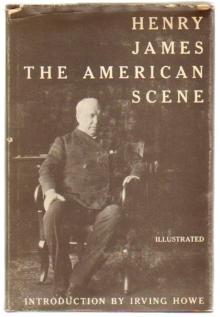 The American
The American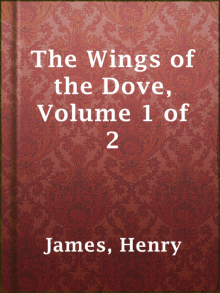 The Wings of the Dove, Volume 1 of 2
The Wings of the Dove, Volume 1 of 2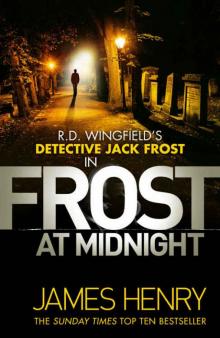 Frost at Midnight
Frost at Midnight Morning Frost
Morning Frost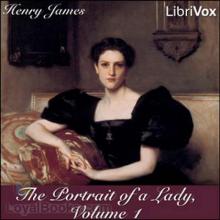 The Portrait of a Lady — Volume 1
The Portrait of a Lady — Volume 1 Fatal Frost
Fatal Frost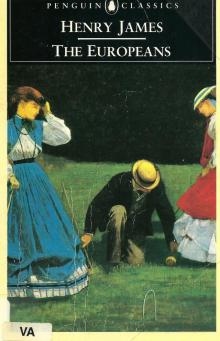 The Europeans
The Europeans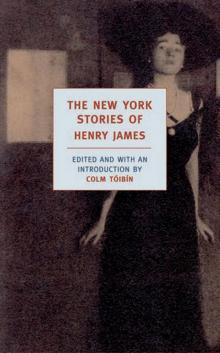 The New York Stories of Henry James
The New York Stories of Henry James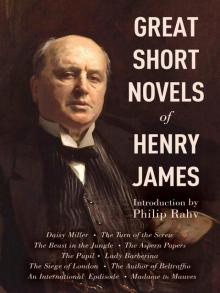 Great Short Novels of Henry James
Great Short Novels of Henry James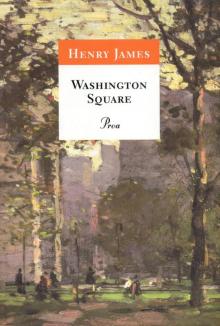 Washington Square
Washington Square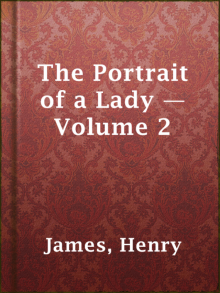 The Portrait of a Lady — Volume 2
The Portrait of a Lady — Volume 2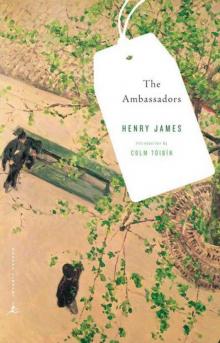 The Ambassadors
The Ambassadors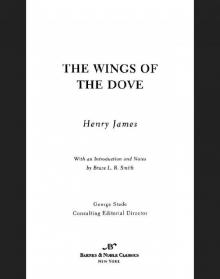 The Wings of the Dove
The Wings of the Dove The Princess Casamassima (Classics)
The Princess Casamassima (Classics) The Coxon Fund
The Coxon Fund First Frost
First Frost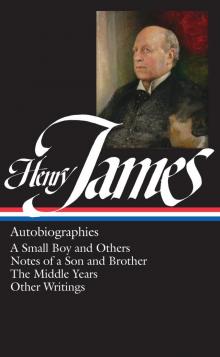 Henry James
Henry James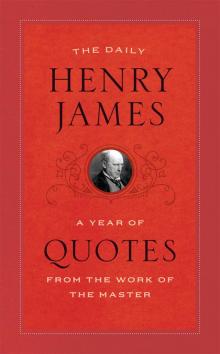 The Daily Henry James
The Daily Henry James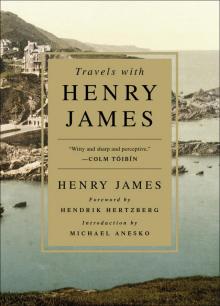 Travels With Henry James
Travels With Henry James The Reverberator: A Novel
The Reverberator: A Novel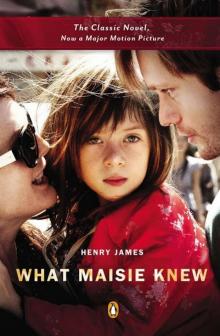 What Maisie Knew (Henry James Collection)
What Maisie Knew (Henry James Collection)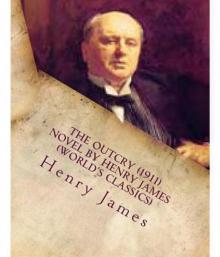 The Outcry
The Outcry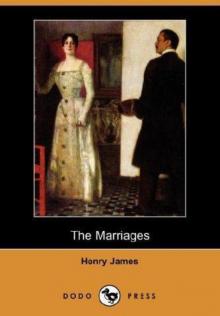 The Marriages
The Marriages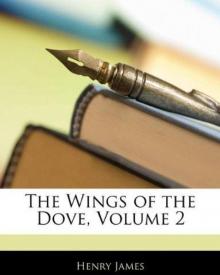 The Wings of the Dove, Volume 2
The Wings of the Dove, Volume 2 The Bostonians, Vol. I
The Bostonians, Vol. I The Outcry: -1911
The Outcry: -1911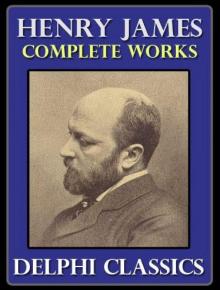 The Complete Works of Henry James
The Complete Works of Henry James Letters from the Palazzo Barbaro
Letters from the Palazzo Barbaro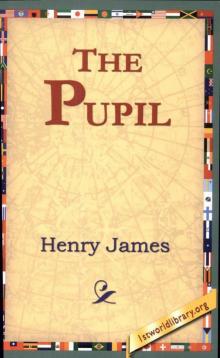 The Pupil
The Pupil The Bostonians, Vol. II
The Bostonians, Vol. II Pandora
Pandora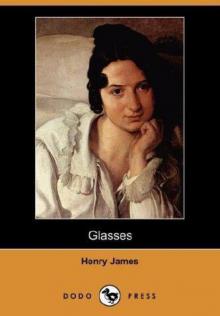 Glasses
Glasses The Princess Casamassima
The Princess Casamassima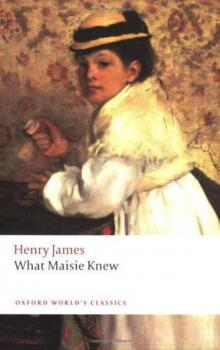 What Maisie Knew
What Maisie Knew The Reverberator
The Reverberator The Golden Bowl - Complete
The Golden Bowl - Complete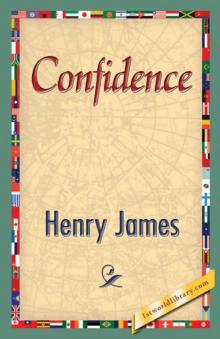 Confidence
Confidence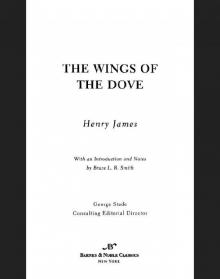 Wings of the Dove (Barnes & Noble Classics Series)
Wings of the Dove (Barnes & Noble Classics Series) The Spoils of Poynton
The Spoils of Poynton